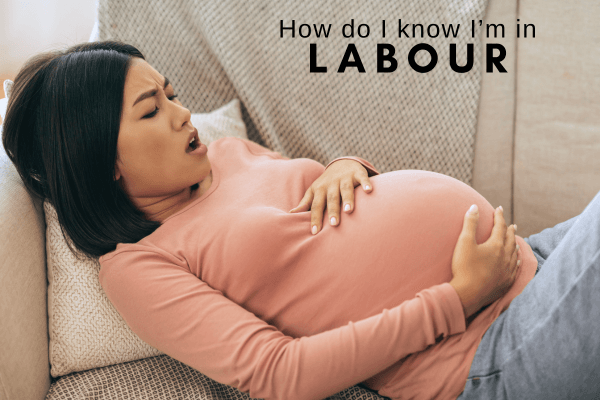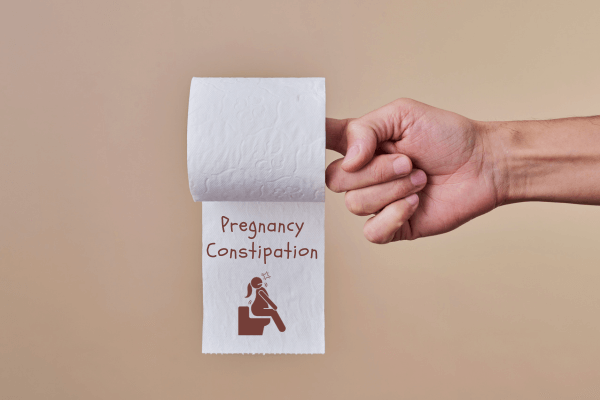Pregnancy is an exciting time, but it could also bring with it a lot of questions and anxiety, especially if it’s your first pregnancy. The Internet has a lot of information, but it is often hard to discern facts from myths. Your OB/GYN might not be available all the time to answer all your questions, address all your concerns or might not even be able to provide you all the details especially when the advice you seek is not purely clinical/medical in nature, and friends and family might just not have the information you need. What you need in these moments is a trained professional who can patiently guide you at each step. This is where a doula comes to the rescue.
A doula can provide the emotional, physical, and informational support you need to positively impact each step of your journey into becoming a parent! Let’s discover what a doula is and the role they can play in the wonderful changes you are about to experience.
What is a doula?
“Doula” is a Greek word that means “a woman in service”. Befittingly a doula’s work is in service of the woman in pregnancy, birthing and postpartum.
A doula is a trained and certified, community-care professional specialising in providing physical, mental, emotional, informational and empowering support to a would-be mother and her partner, in the last phase of her maternity and up to early stages of parenting (breastfeeding and babycare).
The doula can be present during the periods:
- Before childbirth (antepartum)
- During childbirth
- After birth (postpartum)
Doulas not only work with you and your family, they also work with the healthcare professionals, who are providing the medical care. The doula, however, is not a licensed medical professional and doesn’t provide medical advice like a doctor or a midwife but you can find a certified doula who is trained.
What’s a doula? Find out in our video!
What does a doula do?
Doulas can provide emotional support through the drastic changes in hormone levels and the various symptoms during your pregnancy and after delivery. They can teach you and your partner techniques on how to relieve stress and be there with you every step of the way so that you don’t feel alone or overwhelmed. Doulas can be present to guide and provide emotional and scientifically proven support during the time of delivery. After your baby is born, a doula can teach you how to juggle various tasks like how to bathe the baby, how to put the baby to sleep, how to decipher the baby’s cries and how to soothe the baby. Breastfeeding for example could take some time to learn especially if it’s your first baby and the doula could show you how to make it easier and less painful.
What are the different types of doulas?
Antepartum Doula:-
Antepartum doulas start working with the mother a few days or even a couple of months prior to her estimated date of delivery (EDD), to understand her expectations, preferences etc. They ease any anxieties the to-be parents might be experiencing and help them be mentally prepared and well-informed. They are especially trained to provide support in high-risk pregnancies. They can provide support and education for mothers who have preexisting health conditions, or have other risk factors like gestational diabetes. They can help mothers cope with such conditions to ensure that they and the baby are healthy and safe
Labour/ Birth Doula:-
Birth doulas are trained to give mothers emotional and physical (touch, massage, breathing techniques, reflexology) and informational support during birthing. She might start working with the mother prior to her estimated date of delivery (EDD). She helps the expectant mother to chart out a birth plan, weighing the various options and choices and arriving at informed decisions.
Postpartum Doula:-
A postpartum doula looks after you after the baby is born, providing you information and support to aid in postpartum recovery including tips on managing postpartum blues. They can show you methods on how to care for the baby and look after yourself. They can teach you how to juggle various tasks like how to bathe the baby, how to put the baby to sleep, how to decipher the baby’s cries, and how to soothe the baby, etc. They can also help with initiating and establishing breastfeeding and provide emotional support during the first few weeks after birth when everything seems chaotic.
Full Spectrum Doula:-
A full-spectrum doula supports you with the full range of doula services/ support throughout the whole spectrum of pregnancy all the way from preconception to birth to postpartum, as well as help with other things like miscarriage or adoption. The role of a full-spectrum doula is especially critical in high-risk pregnancies. Doulas are knowledgeable with such conditions and can guide you with professional advice to keep you and your baby healthy.
What is the role of a doula in childbirth?
The Internet has a lot of information, but it is often hard to discern facts from myths. The role of a birth doula is to empower a woman in her most delicate time to achieve a healthy and rewarding birthing experience. A doula comes alongside to provide physical and emotional, as well as evidence-based information to support decision-making during the birthing experience. The support extends to the birth support partner and other relatives who are caring for her. The doula also helps the couple understand the medical terminologies that they might come across, the various interventions if any are proposed during labour and birthing and with facilitating communication with the hospital staff especially in absence of the partner/ family.
Let’s go deeper to understand the benefits of a doula.
What are the benefits of hiring a doula?
Having a doula can make your birthing experience more comfortable, and safer. According to studies, there is evidence to support that doulas offer key benefits:
- Decrease medical intervention during the maternity cycle
- Decreased need for a medication-assisted birth
- Reduced risk of a cesarean delivery
- Shorter time spent in labor
- Decreased risk of premature birth
- Increased breastfeeding initiation
- Overall improvement in birth outcomes
What certifications do doulas get?
There are many internationally acclaimed and recognised organizations that provide doula training and certifications. Some of the most commonly known are DONA International, CBI (Childbirth International), CAPPA (Childbirth and Postpartum Association), ICEA (International childbirth education association).
Introducing the virtual doula
The COVID-19 pandemic has affected how people work and has made work from home a norm. This presents an unusual situation for pregnant women who must now manage their professional careers from the home amid the pressures of household responsibilities, and cope with the changes and challenges that pregnancy brings. Online doulas provide virtual support in the comfort of your own home.
Having a virtual doula walk beside you on your birthing journey can bring with it a lot of benefits.
Find your doula
Veira Life provides a wide range of virtual pregnancy support services, including doula support. Through our platform, doulas are readily available to support you on your journey to parenthood and provide you with an empowering and positive birth experience. When you register on Veira Life you are paired with one of the Veira coaches who are trained doulas or midwives with years of experience and a deep passion for the service they provide.
At Veira Life, we would love to answer any queries you might have about doulas or any of the other pregnancy support services that we offer to pregnant women and new mums (and their families).







